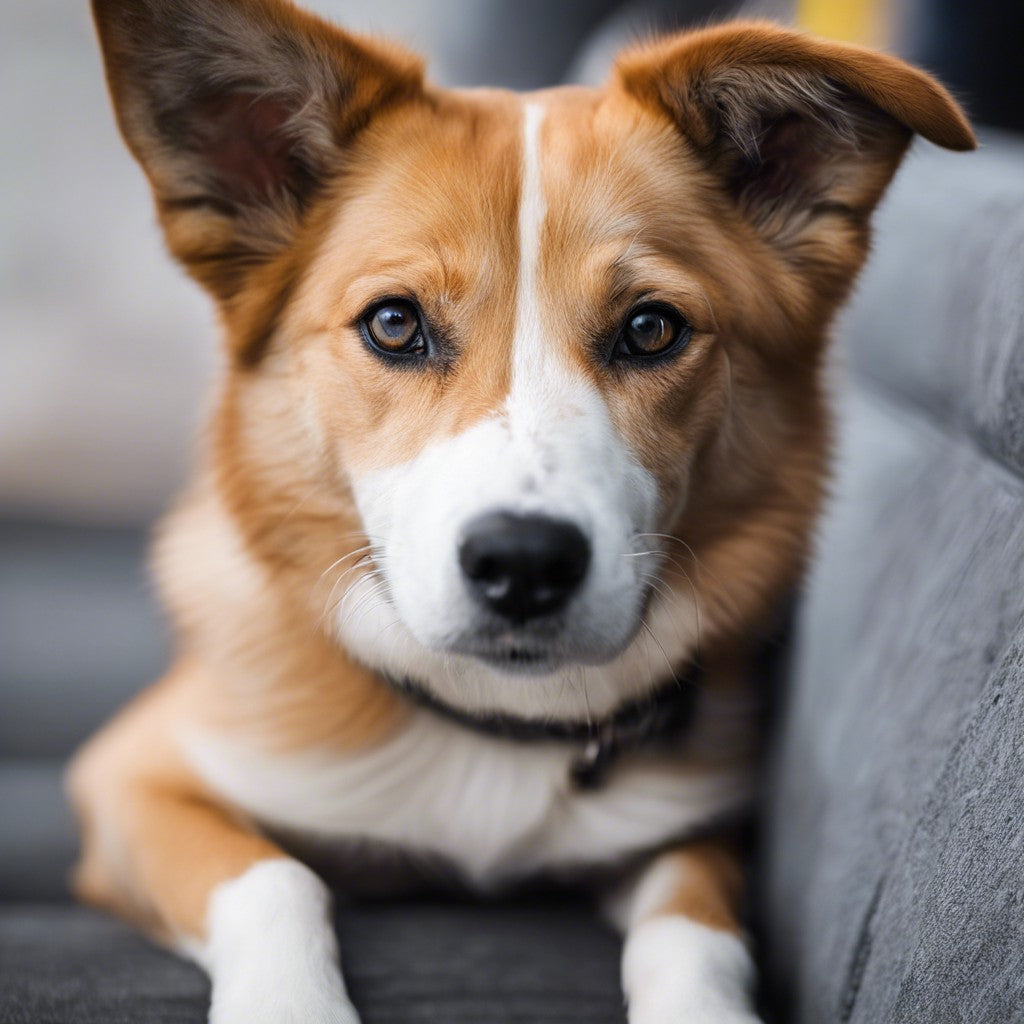

· By Brendan Monahan
Overcoming Rescue Dog Separation Anxiety: A Journey to Trust
For many rescue dogs, the transition to a loving forever home is a joyous occasion, but it can also be a time of immense stress and anxiety. Separation anxiety, in particular, is a common challenge faced by these furry companions, who may have experienced abandonment or trauma in their past. As they adjust to their new surroundings and bond with their adoptive families, the fear of being left alone can manifest in various concerning behaviors.
Understanding Separation Anxiety in Rescue Dogs
Separation anxiety in rescue dogs occurs when these previously displaced or neglected animals become excessively distressed or anxious when separated from their new owners or family members. This anxiety can stem from a variety of factors, including traumatic experiences, lack of proper socialization, or simply the uncertainty that comes with their newfound living situation.
Some common signs of separation anxiety in rescue dogs include:
- Excessive barking, whining, or howling when left alone
- Destructive behavior, such as chewing or scratching at doors and furniture
- Panting, pacing, or restlessness
- Trembling or shaking
- Urination or defecation in the home (even for house trained dogs)
- Excessive drooling or salivation
Left unaddressed, separation anxiety can not only be distressing for the rescue dog but also potentially lead to more severe behavioral issues, strained relationships with their new owners, and even a risk of being returned or surrendered again.
Introducing Brave Paws: A Natural Solution for Anxious Rescue Dogs
While there are various approaches to managing separation anxiety in dogs, many rescue dog owners are seeking natural and effective solutions that align with their companion's unique needs and experiences. Brave Paws, a soft chew supplement designed specifically to help promote calm in anxious dogs, offers a promising option for these furry friends in need.
What sets Brave Paws apart is its unique blend of ingredients: Souroubea, a rainforest vine used for centuries in traditional medicine, and Platanus (Sycamore) bark. Unlike many other anxiety supplements, Brave Paws does not contain CBD, THC, cannabis, tryptophan, or melatonin, making it a more accessible and potentially safer choice for rescue dog owners.
The Benefits of Brave Paws for Anxious Rescue Dogs
- Safe and Natural: Brave Paws is a 100% natural, plant-based product with no prescription required and no negative side effects like drowsiness.
- Easy Administration: Brave Paws comes in the form of tasty beef-flavored soft chews, making it easy to administer to these food-motivated companions.
- Sustainable Sourcing: Brave Paws is sustainably sourced from a village cooperative in Costa Rica, ensuring ethical and environmentally friendly production.
- Positive Reviews: With over sixty 5-star reviews, Brave Paws has already garnered a reputation for effectively managing anxiety in dogs of various backgrounds, including rescue dogs.
By addressing the underlying anxiety that may be causing separation-related issues, Brave Paws can help restore a sense of calm and well-being in your anxious rescue dog, promoting a smoother transition into their new forever home.

Complementary Approaches for Rescue Dog Separation Anxiety
While Brave Paws can be an effective solution to help manage separation anxiety in rescue dogs, a multi-faceted approach may be beneficial for these companions with unique backgrounds and experiences. Here are some complementary strategies that can be used in conjunction with Brave Paws:
- Gradual Desensitization: Gradually increasing the time your rescue dog is left alone, while providing positive reinforcement, can help them become more comfortable with separation.
- Environmental Enrichment: Providing interactive toys, puzzles, and comfortable spaces can help alleviate boredom and anxiety when left alone.
- Crate Training: Properly introducing a crate as a safe, secure space can help reduce anxiety and prevent destructive behavior.
- Professional Support: Working with a certified dog trainer or animal behaviorist can provide valuable guidance in addressing separation anxiety and other potential issues.
By combining Brave Paws with these complementary approaches, you can create a comprehensive plan to manage your rescue dog's separation anxiety and promote overall well-being and a successful transition into their new forever home.
Finding Relief for Your Anxious Rescue Dog
Separation anxiety in rescue dogs can be a challenging hurdle, but with the right tools and strategies, pet owners can help alleviate their furry companion's distress and foster a sense of trust and security.
Brave Paws offers a safe, natural, and effective way to help promote relaxation in anxious rescue dogs, addressing the root cause of behavioral and physical issues related to separation anxiety. With its unique blend of plant-based ingredients, sustainable sourcing, and positive reviews, Brave Paws provides rescue dog owners with a trusted solution for their beloved companion's anxiety-related concerns.
Remember, while natural remedies like Brave Paws can be invaluable, severe or persistent cases of anxiety may require additional intervention from your veterinarian or a professional animal behaviorist. Always consult with experts to determine the best course of action for your rescue dog's specific needs and experiences.
By embracing a holistic approach that combines natural supplements, environmental modifications, desensitization techniques, and professional guidance, you can help your anxious rescue dog overcome the trauma of their past and thrive as a cherished member of your family. With patience, consistency, and the right tools, you can help your furry friend overcome separation anxiety and forge an unbreakable bond built on trust, love, and a newfound sense of security.



